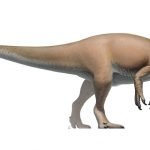Ocean worlds with hydrogen-rich atmospheres could be the perfect spots for life
The search for planets beyond our Solar System (extrasolar planets) has grown by leaps and bounds in the past decade.
A total of 4,514 exoplanets...
Would we still have severe thunderstorms over North America if the Gulf of Mexico...
New study looks at why North America is the global tornado hot spot.
The eastern half of the U.S is one of the principal hot...
Scientists find what triggered the rapid climate change 55 million years ago on Earth
Scientists have uncovered a fascinating new insight into what caused one of the most rapid and dramatic instances of climate change in the history...
Ancient volcanoes may have spurred first ‘whiffs’ of oxygen in Earth’s atmosphere
Volcanic eruptions may have stimulated population surges of marine microorganisms, creating the first puffs of oxygen into the atmosphere, a new analysis of 2.5-billion-year-old...
Scientists retrace the lifetime journey of a 17,000-year-old Arctic woolly mammoth
Researchers have retraced the astonishing lifetime journey of an Arctic woolly mammoth, which covered enough of the Alaska landscape during its 28 years to...
Peabody fossils reveal dinosaur evolution in eastern North America
Tyrannosaurus rex, the fearsome predator that once roamed what is now western North America, appears to have had an East Coast cousin.
A new study...
This giant Jurassic dinosaur allosaurus was a scavenger, not a predator
In a new study, scientists show that Allosaurus, a large carnivorous dinosaur from the Jurassic that has long been thought to be a top...
Earth’s magnetic field could help date ancient archaeological artifacts
Archaeologists traditionally rely on finding organic remains for radiocarbon dating to pinpoint new finds in time, but often these are not found on sites...
Fizzing sodium could explain asteroid Phaethon’s cometlike activity
Models and lab tests suggest the asteroid could be venting sodium vapor as it orbits close to the Sun, explaining its increase in brightness.
As...
Scientists find first giant dinosaur fossils from early Cretaceous Hami pterosaur fauna
A joint Sino-Brazilian research team led by Dr. WANG Xiaolin from the Institute of Vertebrate Paleontology and Paleoanthropology (IVPP) of the Chinese Academy of...










